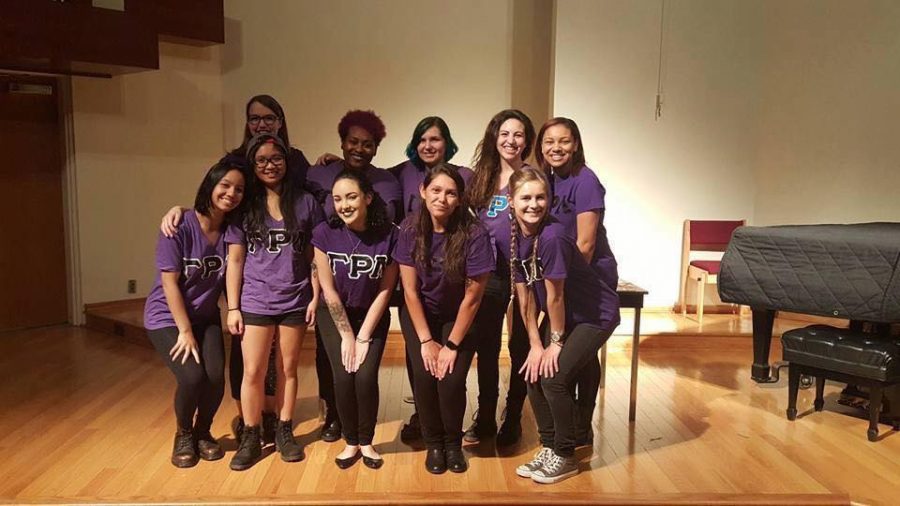Gamma Rho Lambda ‘queers’ Greek norms, strives for intersectional inclusivity
Centered on intersectionality, inclusivity and siblinghood, Gamma Rho Lambda’s Xi Chapter provides an experience definitively distinct from many other organizations at Tulane University.
The organization, founded in 2003 at Arizona State University, was chartered at Tulane on Nov. 16, 2013. Nationally, GRL is considered the first all-inclusive, college-based sorority, welcoming cisgender and transgender women, transgender men, gender variant students of any sexuality and LGBTQ+ and ally female students to a tolerant, diverse and supportive community.
“People get from it a place where you don’t have to change yourself,” junior and GRL President Ivanka Reksono said. “You decide to change to be a better person, and you get to understand who you are and how you can make change on campus and whatnot.”
For many students of marginalized populations, GRL serves as an important space for acceptance and inclusion. Members express the necessity of these inclusive spaces, specifically on Tulane’s campus.
“I realized I could easily access being with a bunch of supportive people on a campus where I just didn’t feel as comfortable as I thought I would,” senior and GRL member Siena Farrar said. “It was very much like walking into the perfect situation.”
GRL is distinct from other sororities established under the National Panhellenic Council. Tulane’s Panhellenic sororities have higher dues than those required by GRL.
Beyond finances, GRL’s historical focus on creating diverse communities and breaking barriers differs from that of Panhellenic sororities, which typically organize around values such as personal and social growth, integrity, service and academic excellence. In addition, GRL is much smaller than other sororities. Its pledge class at Tulane ranges from around one to six members.
“I think it’s just providing a very visible space for intersectionality on a campus that’s not about intersectionality,” Farrar said.
GRL also highlights trust, support, community and scholasticism, much like Panhellenic sororities. One important aspect of GRL is “siblinghood,” a gender-inclusive alternative to “brotherhood” or “sisterhood” as used by fraternities and sororities, respectively.
“When I started to get to know these people, they became my family,” Reksono said. “The siblinghood was really important to me. I didn’t realize how important these people would become in my life.”
Additionally, GRL is dedicated to philanthropy which relates to its own mission. Members of the Xi Chapter work with BreakOUT!, an organization that seeks to end the criminalization of lesbian, gay, transgender and questioning youth in New Orleans. Proceeds from different events or fundraisers, like Pride Prom and T-shirt sales, are regularly donated to the organization.
GRL’s Xi Chapter is a small, rising force at Tulane, one that has an important mission to many individuals on campus. For these students, GRL just might be their “perfect situation.”
Leave a Comment
Your donation will support the student journalists of Tulane University. Your contribution will allow us to purchase equipment and cover our annual website hosting costs.


















Staci VanCoppenolle • Feb 17, 2017 at 11:52 pm
What a Refreshing article! 🙂 I <3 GRL…be yourself!
Angelika Rob Robertson • Feb 17, 2017 at 1:23 am
Great article 🙂 thanks for telling people what Gamma Rho Lambda is all about